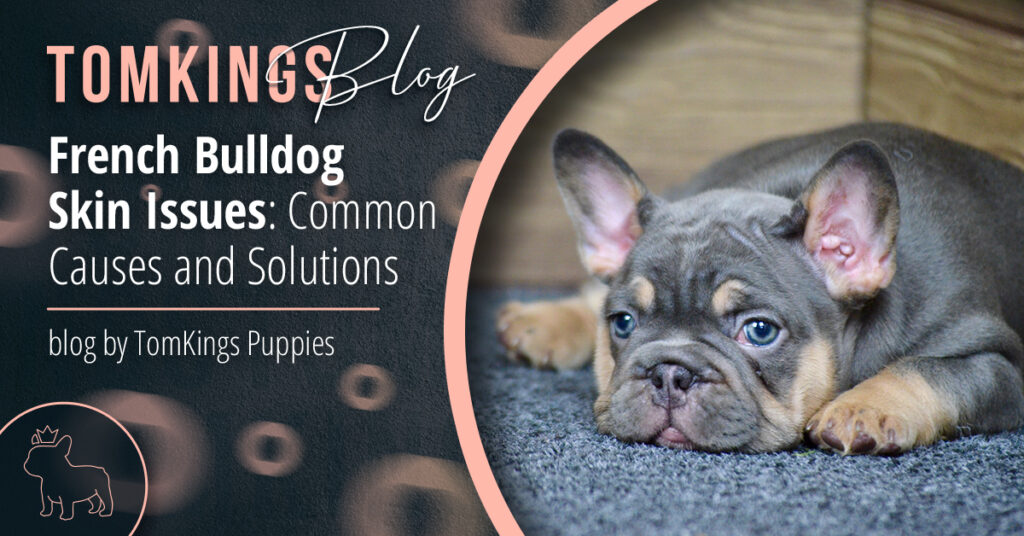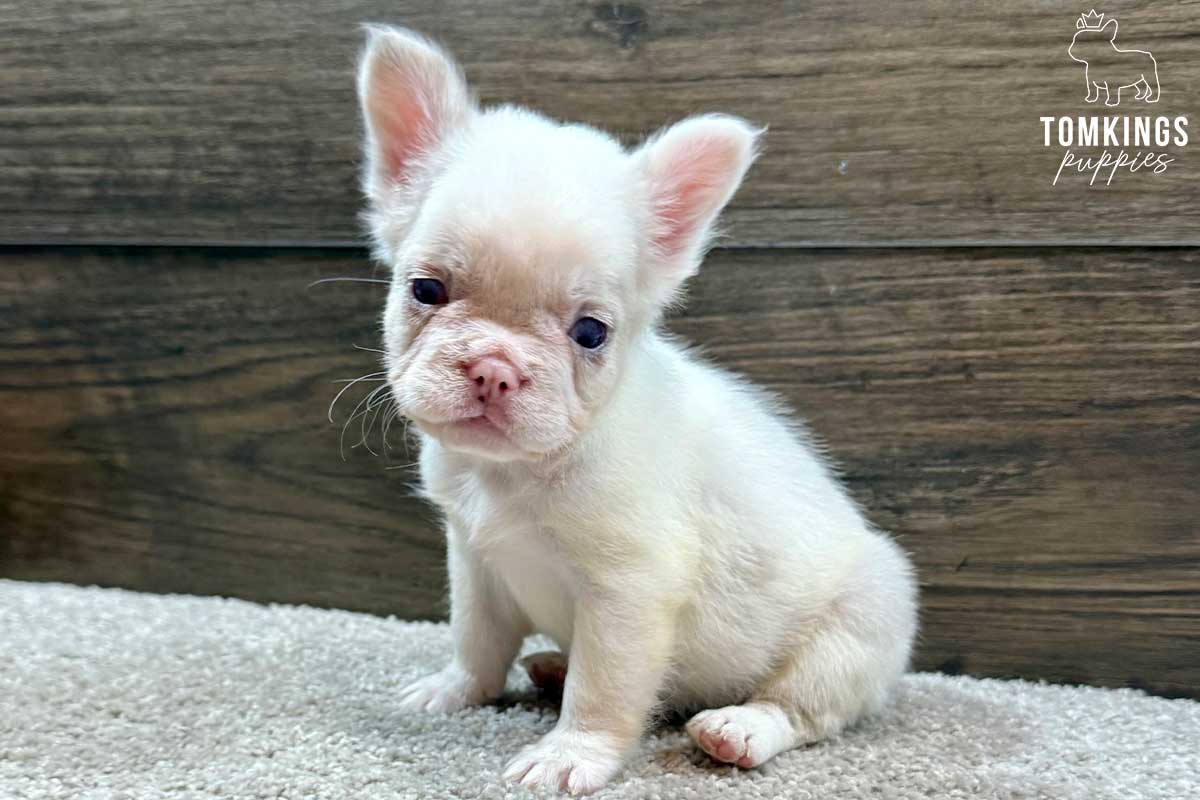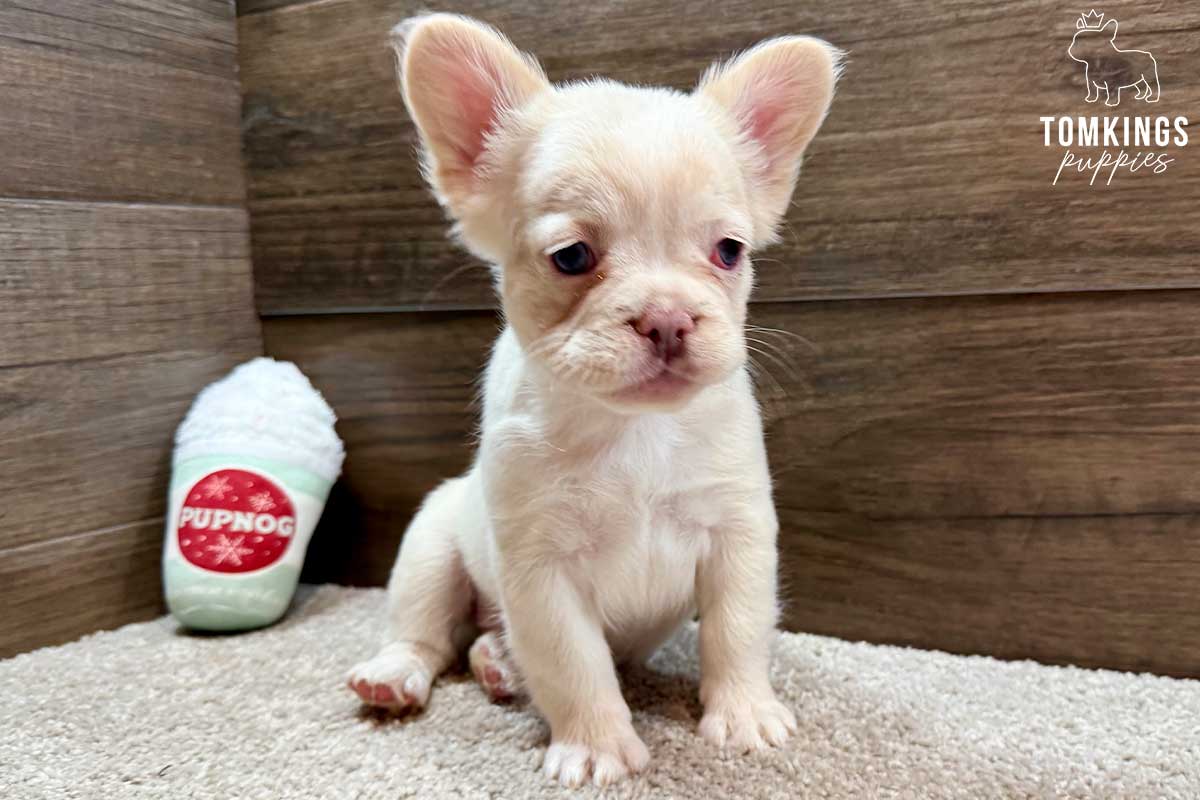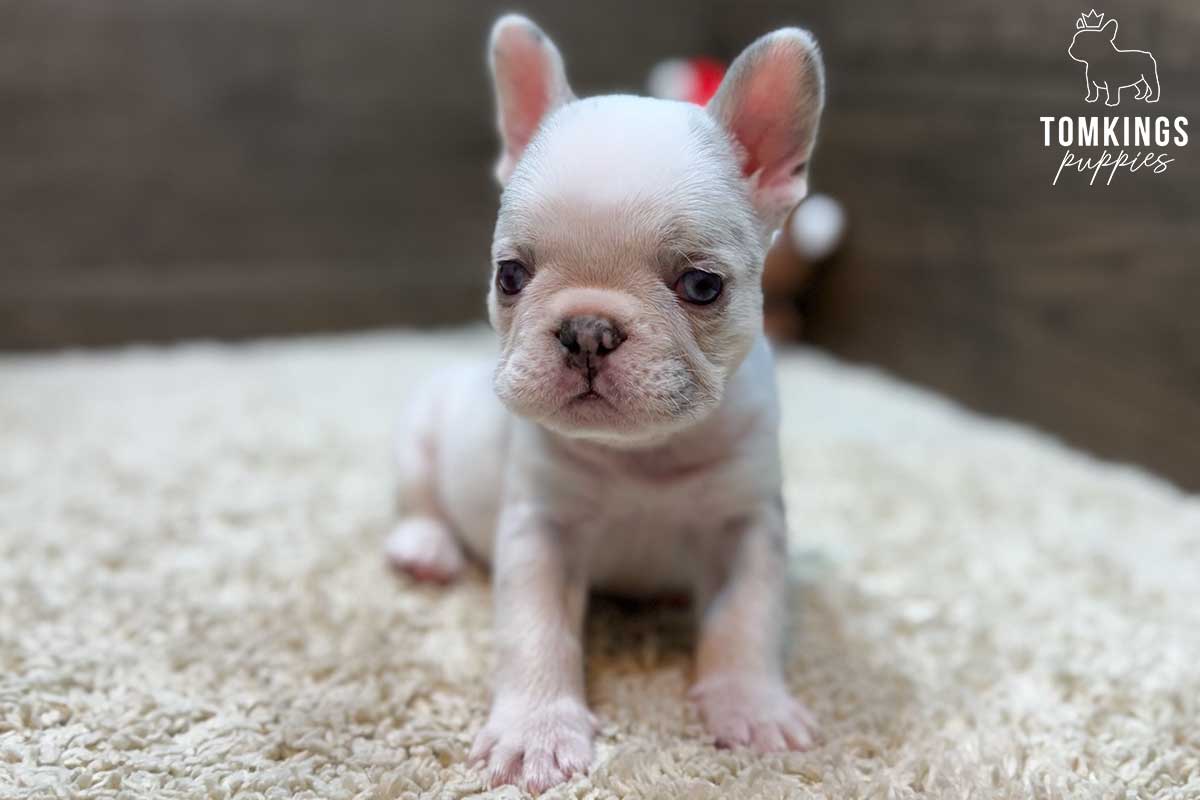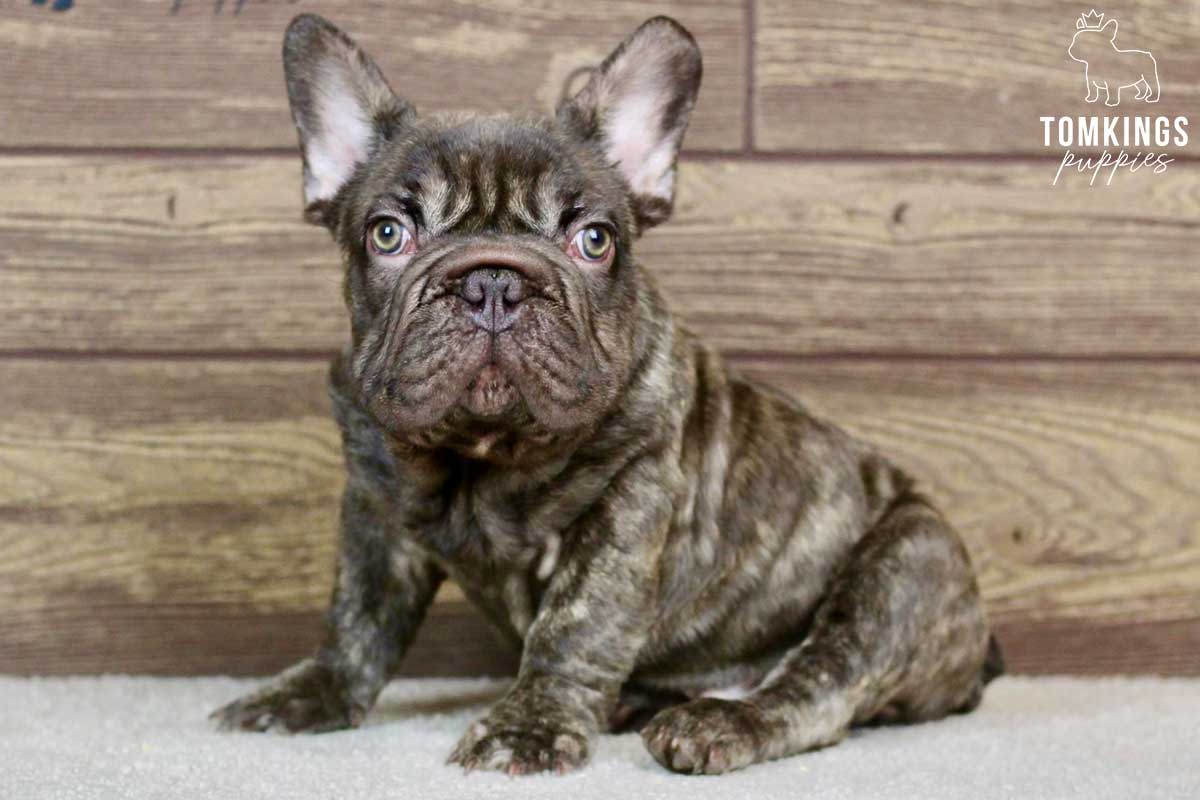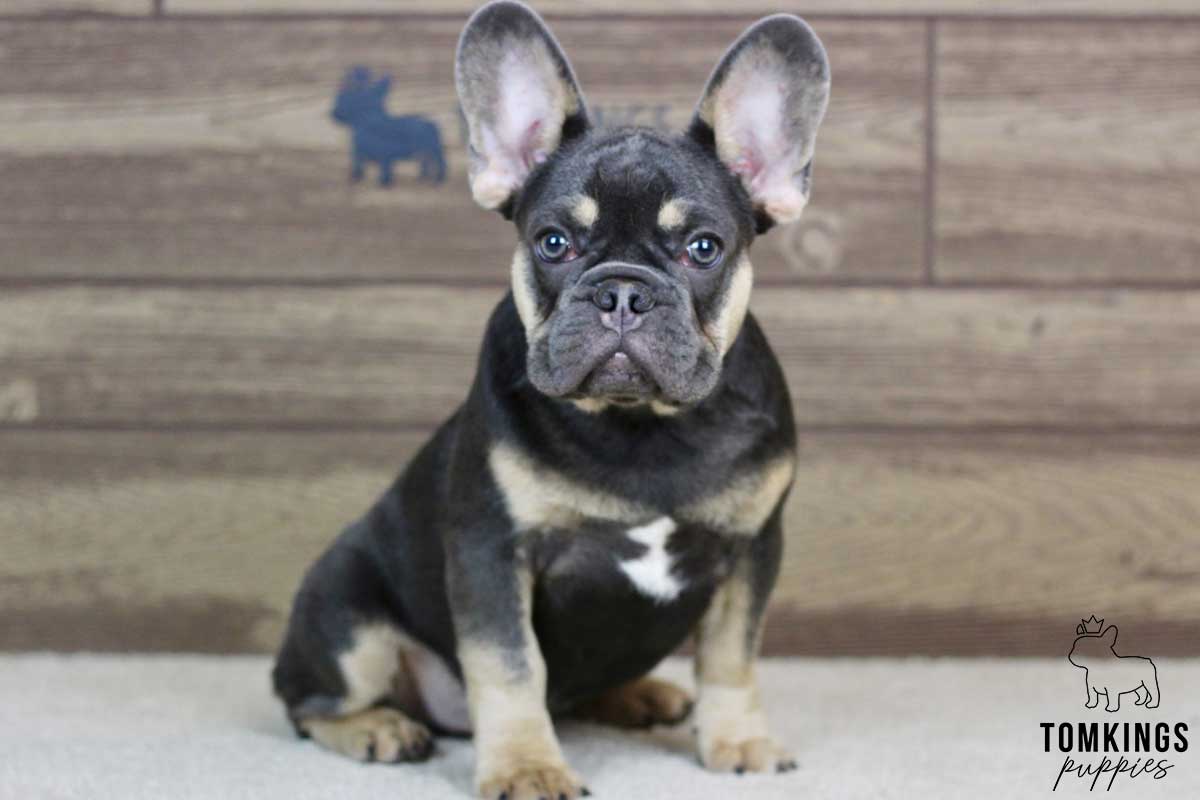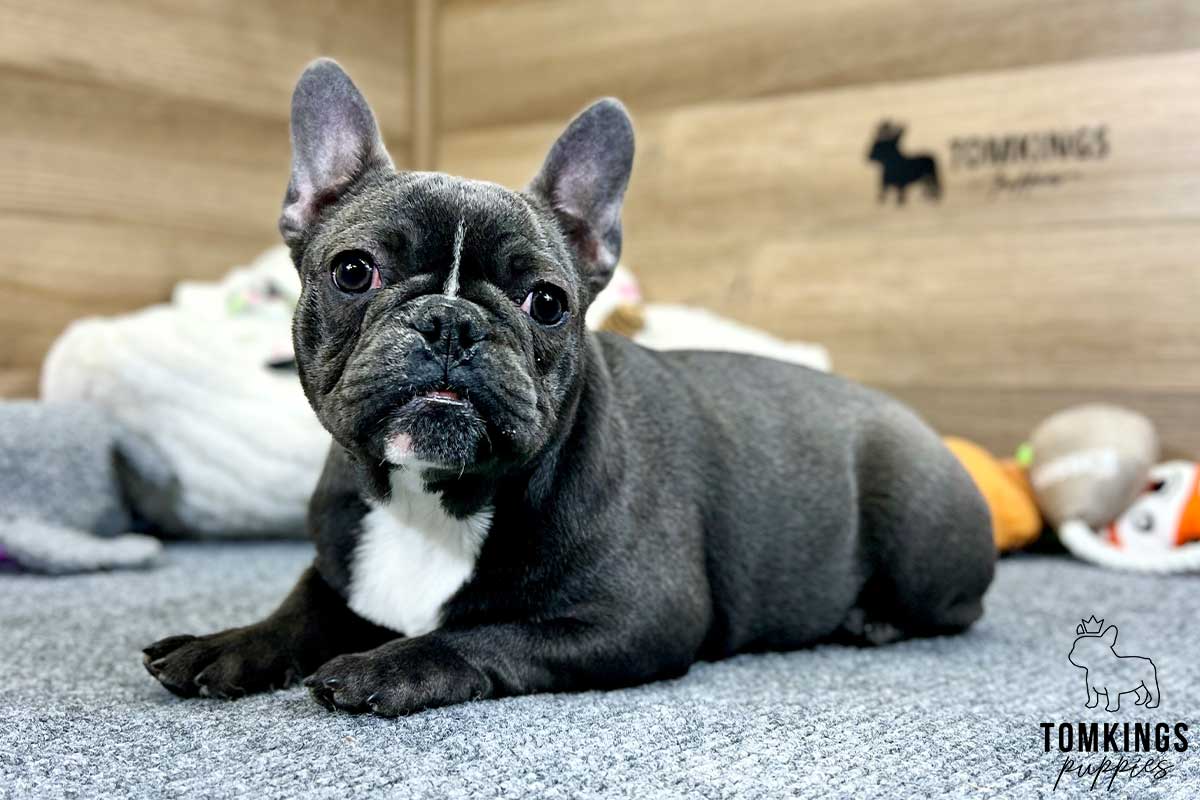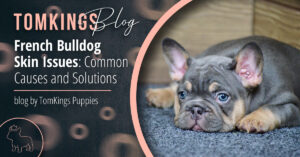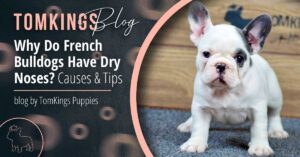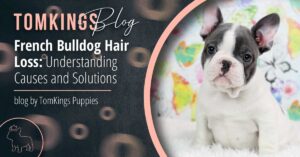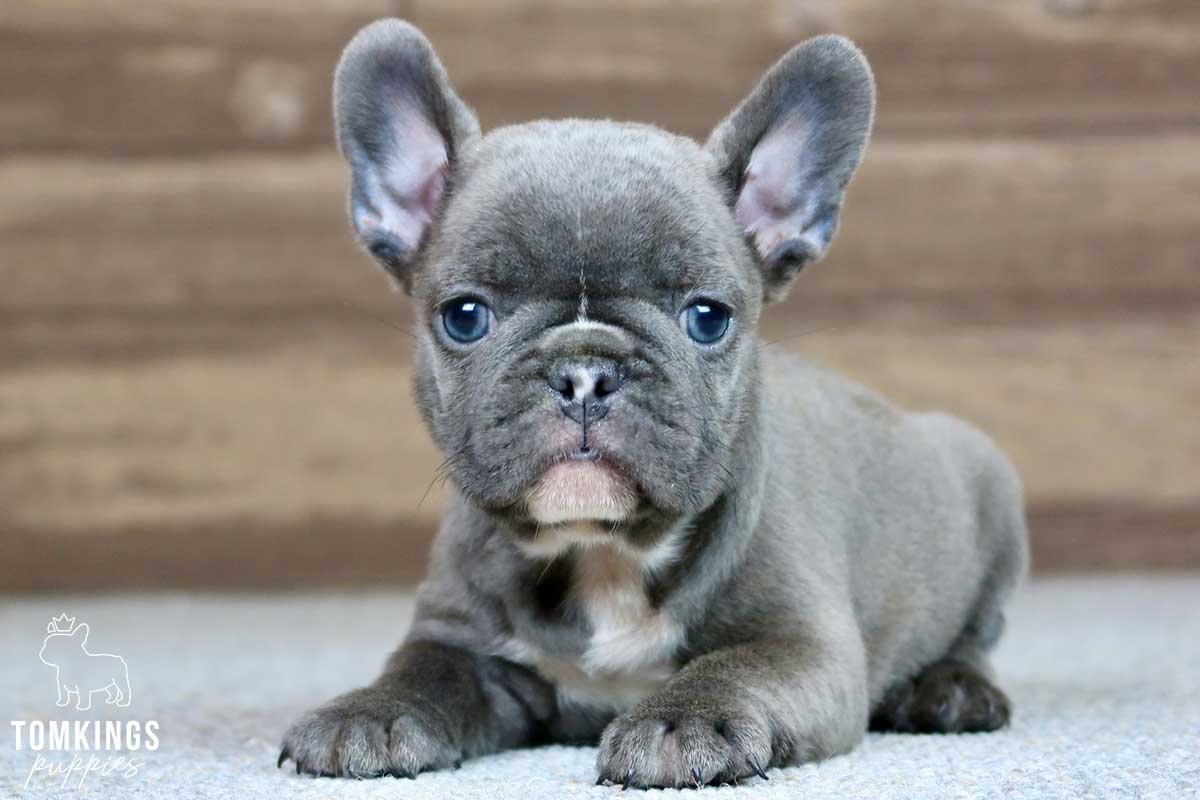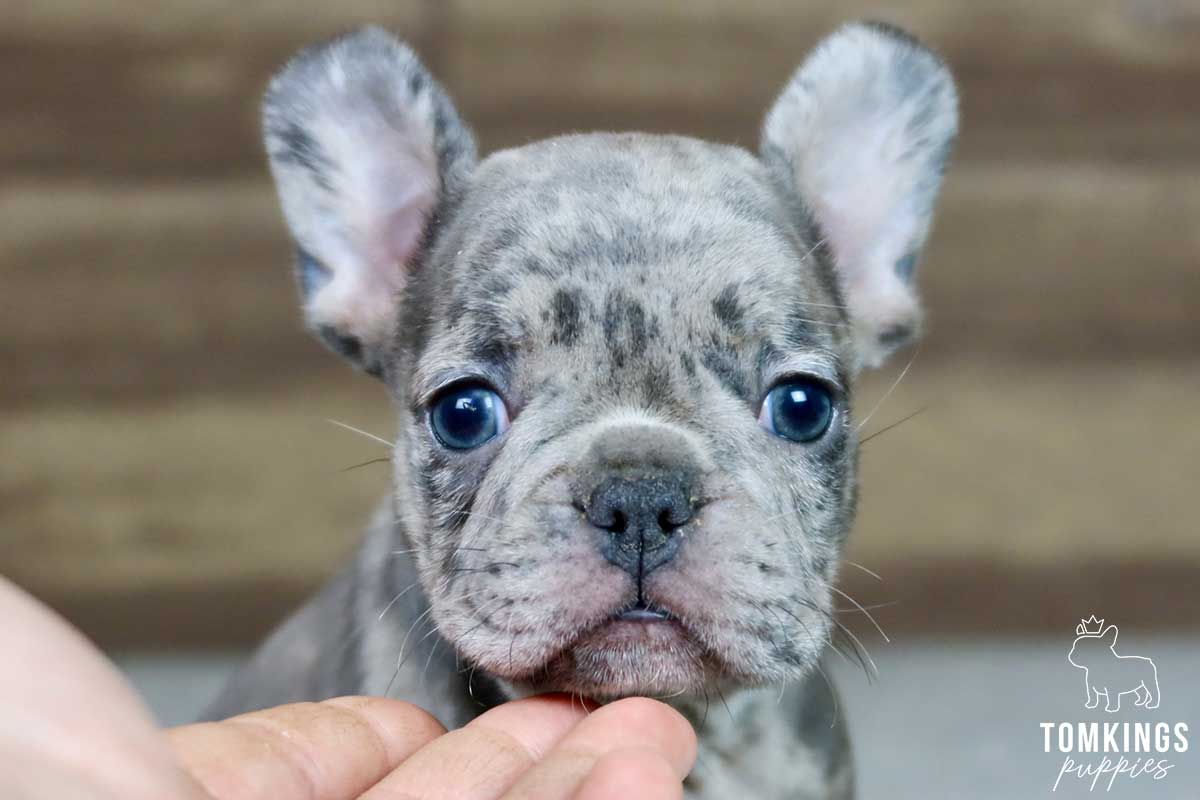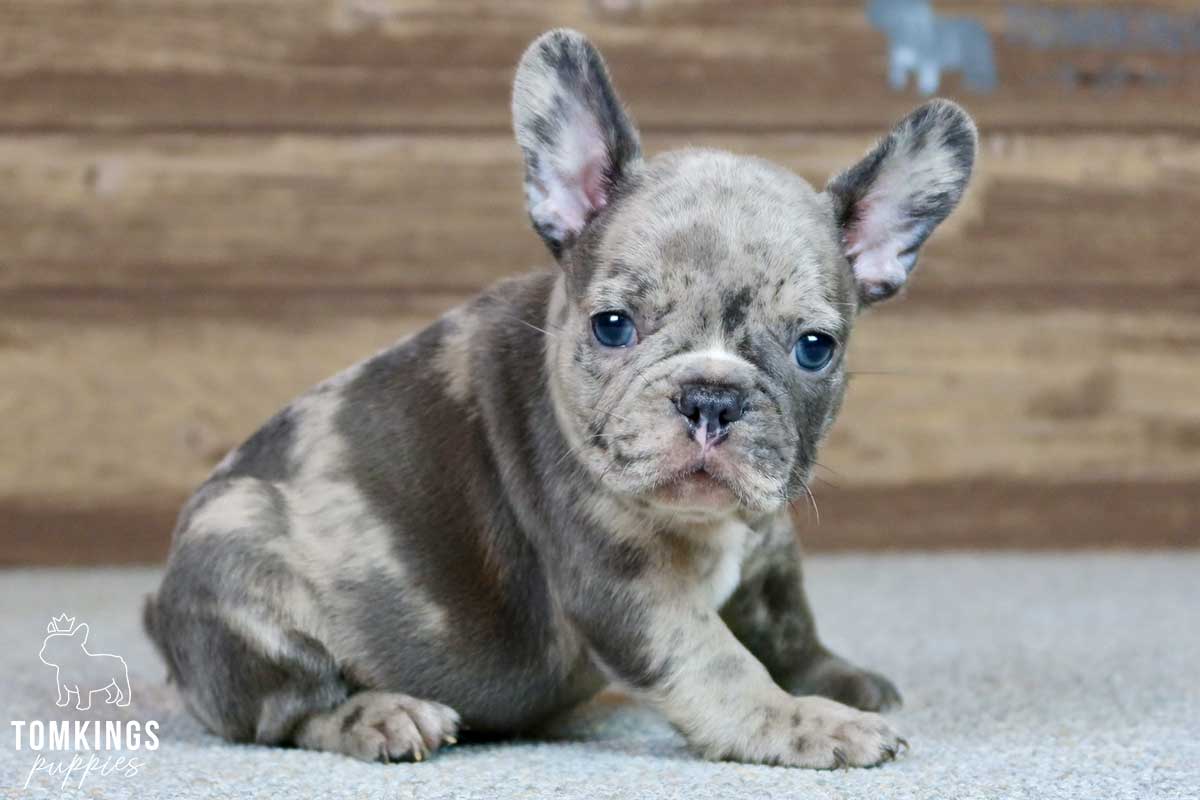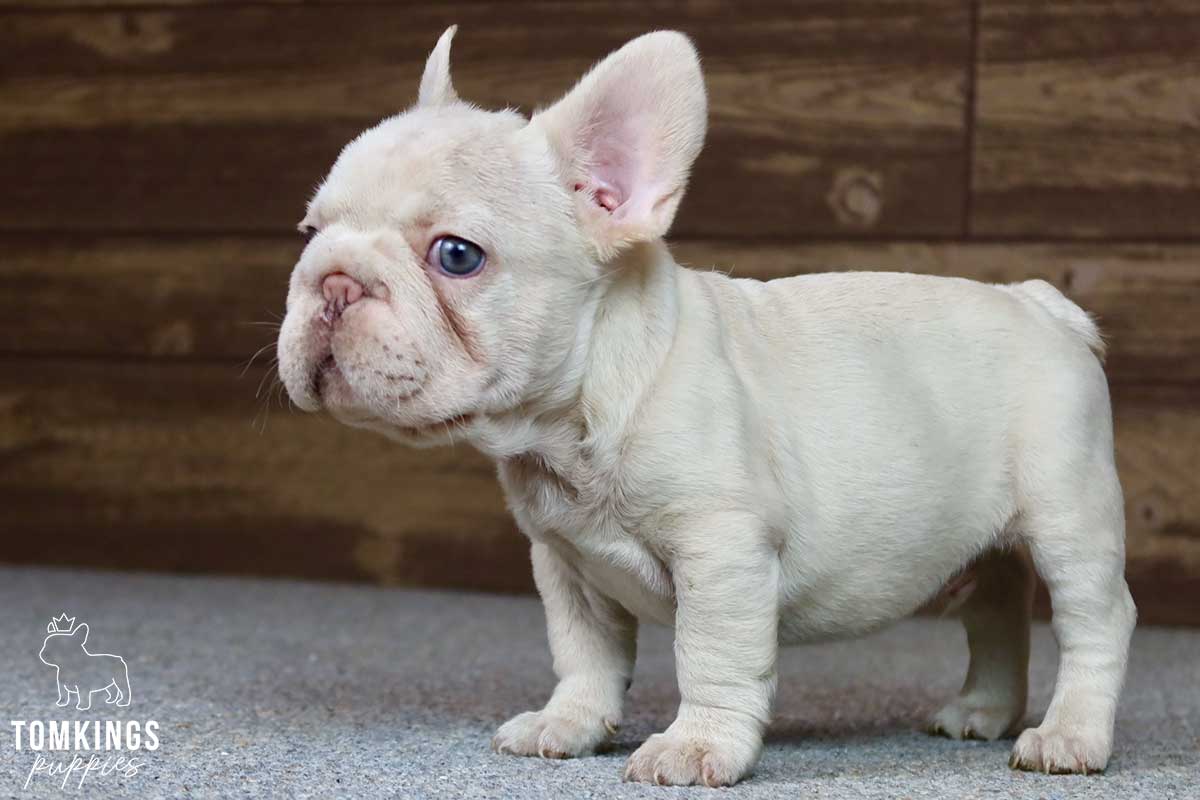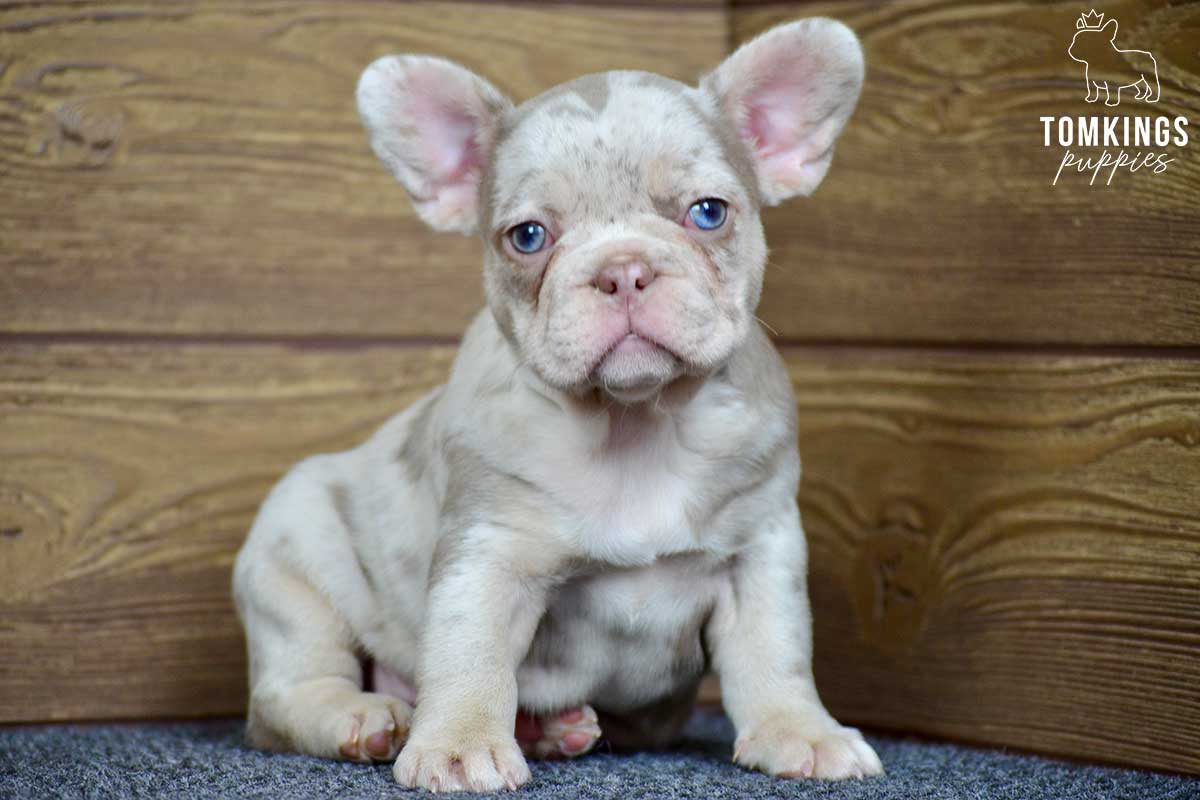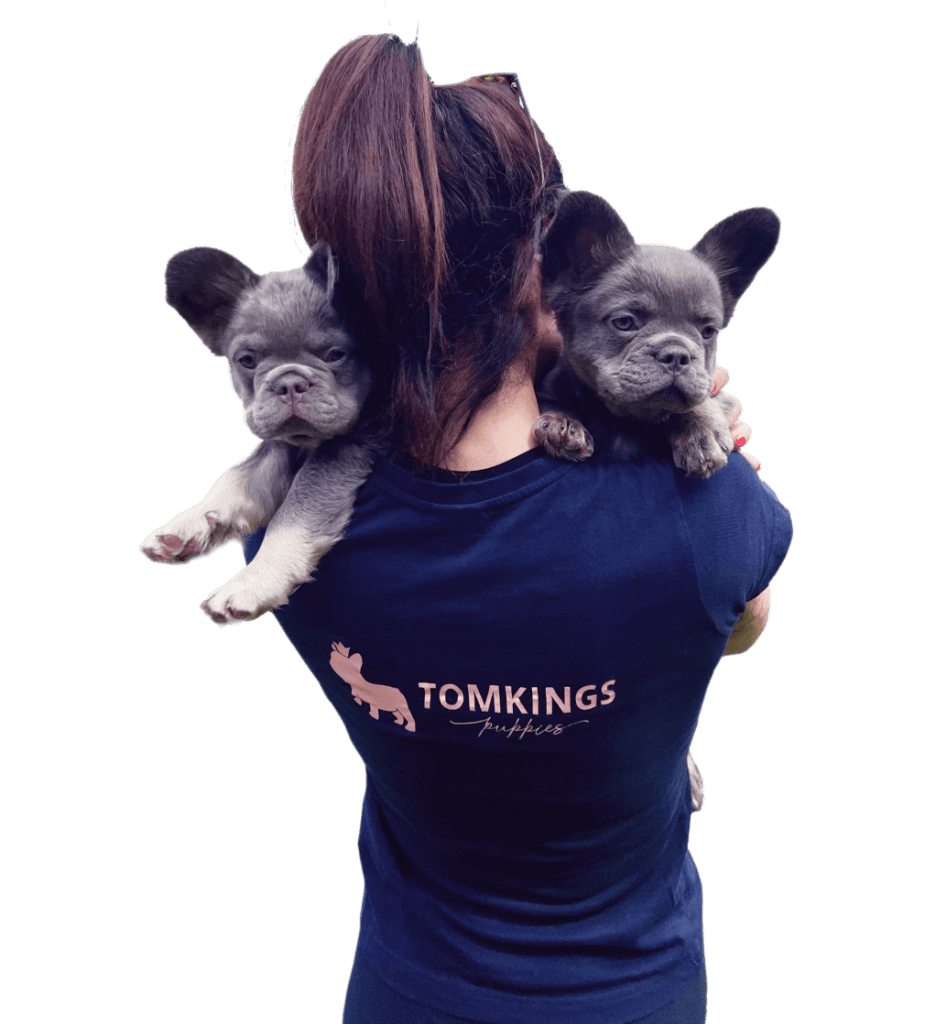French Bulldogs are some of the most lovable and unique companions you could ask for. With their iconic bat ears, adorable wrinkles, and playful personalities, it’s no wonder they’ve stolen the hearts of so many dog lovers. However, as any Frenchie parent knows, those charming wrinkles and sensitive skin come with their own set of challenges. French Bulldog skin issues are among the most common health problems owners encounter, and understanding them is essential to keeping your pup happy and comfortable. In this guide, we’ll walk you through the most common French Bulldog skin issues, their causes, preventive measures, and treatments to ensure your Frenchie stays healthy and itch-free.


Table of Contents
ToggleCommon Skin Issues in French Bulldogs
Your Frenchie’s skin does so much more than you might think—it helps with insulation, temperature regulation, sensory perception, and even Vitamin D synthesis! But because of their unique anatomy and sensitive skin, our lovable Frenchies can be prone to a variety of skin issues. From minor irritations to more serious conditions, understanding these problems and knowing how to address them early can make all the difference in keeping your furry family member happy and healthy.
Skin Fold Dermatitis
Those adorable wrinkles and folds that make Frenchies so charming can also be a source of trouble. Skin fold dermatitis occurs when moisture, heat, and friction build up in these folds, leading to inflammation and irritation. This condition is most common in areas like the face, tail, armpits, and groin. Symptoms include redness, itching, a musty odor and discomfort in the affected areas.
Prevention and Treatment:
The key to managing skin fold dermatitis is prevention. Keep your Frenchie’s folds clean and dry by regularly wiping them with pet-safe wipes and ensuring they are thoroughly dried afterward. Using a pet-safe powder can help absorb excess moisture and prevent irritation. If the condition does develop, thorough cleaning and disinfecting are often enough to resolve mild cases. For more severe infections, your vet may recommend antibiotics to clear up the infection and relieve irritation.
Allergies
French Bulldogs can also be prone to allergies, which often manifest as skin issues. These are mostly caused by certain foods, environmental factors like pollen or dust, or even flea bites. Food allergies, in particular, are very common in Frenchies and are often triggered by low-quality dog foods containing chicken or grains. Symptoms include itching, redness, hair loss, and irritated skin.


Prevention and Treatment:
Identify and eliminate allergens where possible. For food allergies, switching to a high-quality, hypoallergenic diet can make a big difference. For environmental allergies, frequent cleaning of your Frenchie’s paws and fur after outdoor activities can help reduce exposure to irritants. Your vet may also prescribe antihistamines, steroids, or specialized diets to manage symptoms. For more info on allergies and how they affect Frenchies, check out our detailed article about The Most Common French Bulldog Allergies.
Pyoderma
Pyoderma is a bacterial skin infection that often develops in moist areas, such as the folds of a Frenchie’s skin. It presents as red bumps or pustules, flaky or crusty skin, and a noticeable odor. If left untreated, it can lead to more serious infections.
Prevention and Treatment:
Keep your Frenchie’s skin clean and dry. Use medicated shampoos or antimicrobial sprays as recommended by your vet. In cases of severe infection, antibiotics may be required.


Ultimate Guide
to Raising a Frenchie
Hot Spots (Acute Moist Dermatitis)
Hot spots are red, inflamed patches of skin that can appear suddenly and spread quickly. They’re often caused by excessive licking, scratching, or chewing in response to an itch. These spots can become painful and ooze if not treated promptly.
Prevention and Treatment:
If you notice a hot spot, clean the area gently and keep it dry. Your vet may prescribe antibiotics, antiseptics, or a cone to prevent further irritation. Identifying and addressing the underlying cause—such as fleas or allergies—is crucial to prevent recurrence.
Canine Acne
Yes, Frenchies can get pimples too! Canine acne usually appears around the lips and muzzle and looks like small red bumps or pustules. It’s often caused by dirt, irritation, or bacteria.
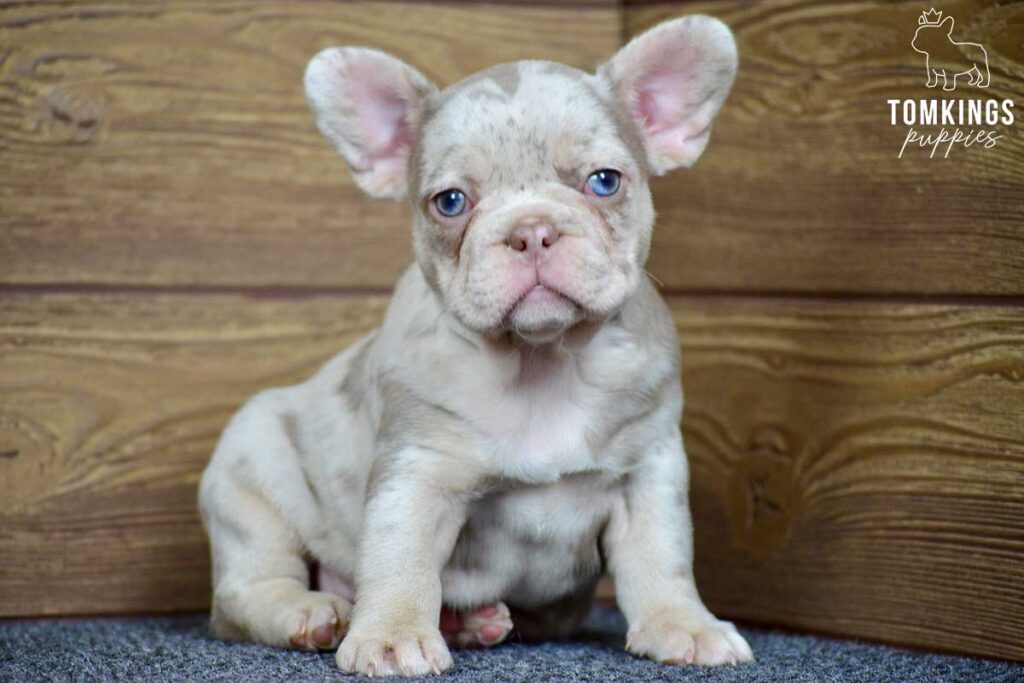

Prevention and Treatment:
Keep your Frenchie’s face clean, especially after meals or playtime. Avoid letting them root around in dirt or other irritants. Your vet may recommend topical treatments, such as benzoyl peroxide, to manage flare-ups.
Benign and Malignant Skin Tumors
French Bulldogs can sometimes develop small lumps or bumps on their skin, which may be accompanied by changes in pigmentation, discoloration, itching, or bald, reddened areas. In some cases, these growths can progress into non-healing or rapidly growing ulcers, which require immediate attention.
Prevention and Treatment:
It’s crucial to consult a vet if you notice any unusual growths. A biopsy is typically needed to determine whether the tumor is benign or malignant. Benign growths often don’t require removal unless they cause discomfort or are aesthetically bothersome. However, malignant tumors should be surgically removed as soon as possible to prevent further complications.
Causes of Skin Issues
Many factors can contribute to French Bulldog skin issues we’ve just discussed, ranging from genetics to environmental triggers. Let’s take a closer look at the most common causes.
Genetic Predisposition
French Bulldogs are genetically prone to skin problems due to their unique anatomy and breeding history. Their skin folds create warm, moist environments that are ideal for bacterial growth, while their sensitive skin makes them more susceptible to allergies and infections.
However, choosing to get your puppy from an ethical French Bulldog breeder can greatly reduce the likelihood of these problems. Reputable breeders prioritize the health of their dogs by carefully selecting breeding pairs with strong genetics and fewer predispositions to common health issues.
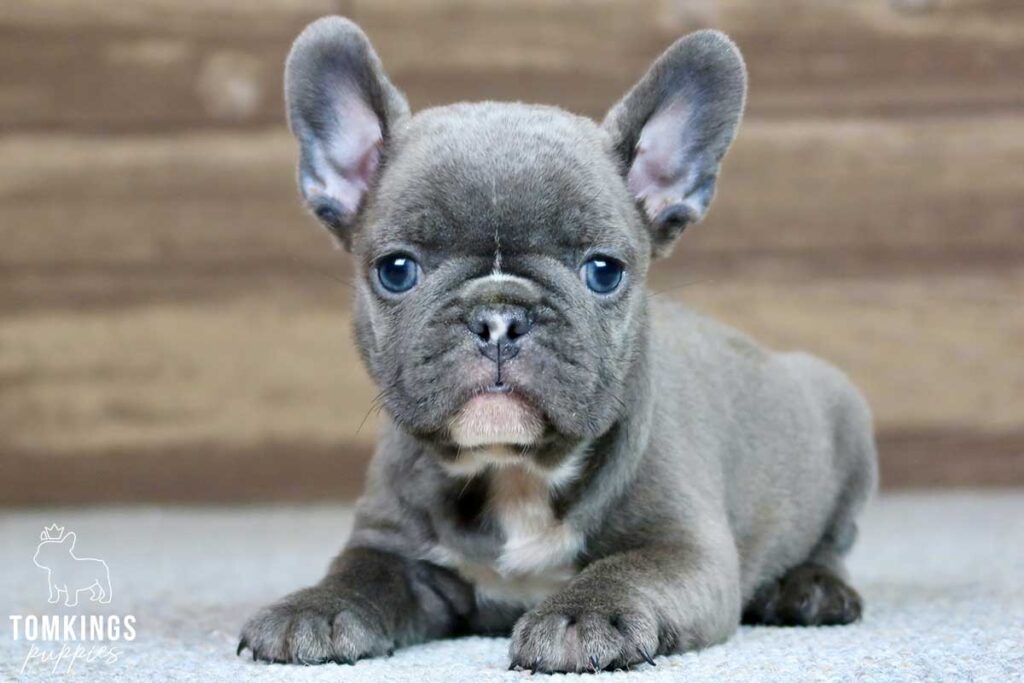

Dietary Factors
A poor-quality diet can have a significant impact on your Frenchie’s skin health. Foods containing common allergens like chicken or grains can trigger food allergies, resulting in chronic itching and irritation. Lack of essential nutrients, such as omega-3 fatty acids, can also contribute to dry, flaky skin.
Environmental Factors
Environmental allergens, such as pollen, dust, or mold, can lead to itchy, irritated skin in French Bulldogs. Seasonal changes may also exacerbate these allergies, with spring and summer being particularly challenging. Additionally, exposure to road salt, fertilizers, or harsh cleaning chemicals can cause contact dermatitis, leading to redness and inflammation.
Poor Hygiene
Infrequent cleaning of your Frenchie’s skin folds, paws, and ears can lead to a buildup of moisture and bacteria, increasing the risk of infections. Overbathing, on the other hand, can strip the skin of natural oils, causing dryness and irritation. Finding the right balance is key to maintaining healthy skin.


Subscribe to our weekly blog newsletter
Parasites
Fleas, ticks, and mites are common culprits when it comes to French Bulldog skin issues. These parasites can cause intense itching, redness, and even hair loss. Without proper prevention, they can lead to secondary infections and worsen existing skin conditions.
Preventive Measures
While French Bulldog skin issues are common, many of them can be managed or even avoided with proper care. By taking proactive steps, you can help your Frenchie maintain healthy skin and prevent discomfort. Here are some essential preventive measures:
Regular Cleaning
Daily cleaning of your Frenchie’s skin folds, paws, and ears is one of the most effective ways to prevent bacterial or fungal infections. Use pet-safe wipes or a damp cloth to gently clean these areas, making sure to dry them thoroughly afterward. Moisture trapped in the folds is a breeding ground for bacteria, so keeping these areas dry is key. Check out our how-to video about how to clean your Frenchie’s wrinkles.
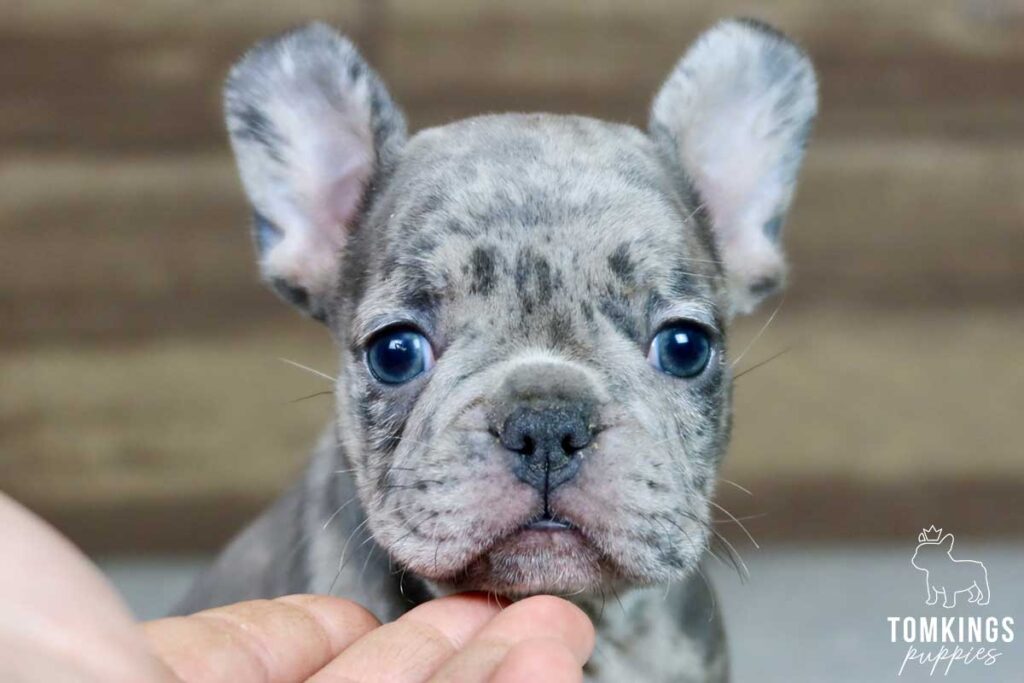

Balanced Diet
A high-quality, balanced diet is critical for your Frenchie’s skin health. Look for hypoallergenic dog food free of common allergens like chicken and grains, as these can trigger food allergies. Adding omega-3 fatty acids through supplements or fish-based foods can also promote a healthy coat and reduce inflammation. Read our tips on how to choose The Best Food For Your French Bulldog.
Routine Veterinary Check-ups
Regular visits to the vet are essential for catching potential skin issues early. Your vet can perform thorough examinations, recommend appropriate treatments, and provide tailored advice for maintaining your Frenchie’s skin health. Annual check-ups are a must, but more frequent visits may be necessary if your Frenchie has a history of skin problems.
Parasite Control
Preventing fleas, ticks, and mites is essential for keeping your Frenchie’s skin healthy and irritation-free. There are two main types of parasite control: external and internal treatments.
External Treatments include options like collars, ultrasonic flea and tick repellents, and spot-on treatments that are applied directly to your Frenchie’s skin. Spot-on treatments are particularly effective, as they not only tackle fleas and ticks but can also eliminate mites.
Internal Treatments, such as chewable tablets, offer another great layer of protection. These are often designed to address multiple types of parasites, including internal ones like heartworms and external ones like mites, making them a versatile choice for your Frenchie’s needs.
Both spot-on treatments and tablets are highly effective and provide broader protection than some other methods. We recommend chatting with your vet to create a parasite prevention plan tailored to your pup’s lifestyle.


Proper Grooming
Although French Bulldogs have short coats and don’t require extensive grooming, regular brushing helps remove dead hair and promotes healthy skin. It’s also a great opportunity to check for any bumps, redness, or unusual symptoms that may indicate a problem. Be sure to use a gentle, fragrance-free shampoo when bathing your Frenchie to avoid irritating their sensitive skin.
Common Treatments for Frenchie Skin Issues
Despite your best efforts to prevent them, French Bulldog skin issues can still arise. Thankfully, there are many effective treatments available to help your pup recover and stay comfortable. Here are the most common approaches:
Topical Treatments
For mild to moderate skin issues, topical treatments like medicated shampoos, sprays, or creams are often the first line of defense. These products can soothe irritation, reduce inflammation, and eliminate bacteria or fungi. Your vet may recommend antimicrobial sprays for infections or antiseptic solutions for hot spots.
Medications
In more severe cases, your vet may prescribe medications to address the underlying issue. Antibiotics are commonly used for bacterial infections like pyoderma, while antihistamines or steroids can help manage allergies and reduce itching. It’s important to follow your vet’s instructions carefully and complete the prescribed course of medication to ensure the issue is fully resolved.
Dietary Changes
If food allergies are the cause of your Frenchie’s skin problems, switching to a hypoallergenic or grain-free diet can be life-changing. Your vet may recommend an elimination diet to identify the specific allergen and guide you toward suitable food options. Incorporating supplements like omega-3 fatty acids can also promote healthy skin and reduce inflammation.
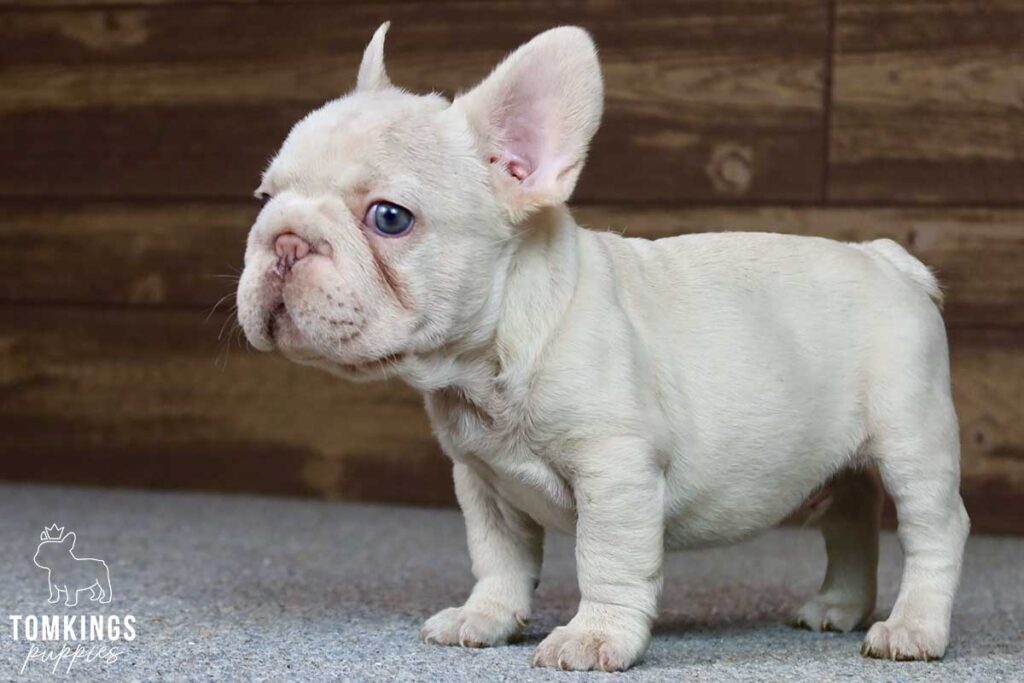

Immune Support
Frenchie skin issues can often signal that their immune system needs a little extra help. Recurring or stubborn skin problems are usually a sign that their body’s defenses could use some strengthening. One of the most effective ways to boost your Frenchie’s immune health is through liquid drops, which are easy to administer and quickly absorbed. A consistent daily routine over three months can make a noticeable difference.
Environmental Management
Environmental allergens, such as pollen or dust, can be a major trigger for skin issues in French Bulldogs. Regularly cleaning your home, using air purifiers, and wiping down your Frenchie’s paws and coat after walks can help reduce exposure to these irritants. For contact dermatitis caused by road salt or other substances, rinse your pup’s paws with clean water after outdoor activities.
Surgical Intervention
In rare and severe cases, surgical intervention may be necessary. This is most commonly seen in recurring skin fold infections that cannot be managed with other treatments. A procedure to remove excess skin in problem areas can help eliminate the root cause of these infections, improving your Frenchie’s quality of life. Surgery may also be needed for certain skin growths, particularly if they are malignant or causing discomfort. Removing problematic growths early can prevent complications.
When to Consult a Veterinarian
While many French Bulldog skin issues can be managed at home with proper care, there are times when professional help is essential. Early intervention from a veterinarian can prevent small problems from escalating into more serious health concerns. Here’s when you should consult a vet:
- Symptoms persist: If itching, redness, or irritation doesn’t improve within a few days.
- Signs of infection: Swelling, oozing, foul odors, or pus appear.
- Hot spots worsen: Rapidly spreading, painful sores need immediate attention.
- Severe hair loss: Excessive shedding or bald patches could indicate a deeper issue.
- Recurring problems: Frequent infections or allergies may need a tailored long-term plan.
In cases where basic external and internal treatments fail or symptoms worsen despite treatment, your vet may perform additional diagnostics, such as a skin scraping, to identify underlying causes like mites or fungal infections. These tests ensure your Frenchie gets the right care to address the root of the problem.
Always trust your instincts—if something doesn’t feel right, it’s better to check with your vet!
If you’d like to learn more about caring for French Bulldogs, join our TomKings Frenchie Family Facebook group, where fellow Frenchie parents share insights and experiences.
The article is based on the expert knowledge of the TomKings Puppies team who have been breeding French Bulldogs for 15 years on their farm. All the pictures in the post belong to them and their customers, and show puppies from their breed. Check their available French Bulldog puppies, or if you have any questions or comments let us know below the article.
Related Blogposts:
- French Bulldog Skin Issues: Common Causes and Solutions
- 9 Ways You Might Be Shortening Your Frenchie’s Life
- Why Do French Bulldogs Have Dry Noses? Causes & Tips
- French Bulldog Ears Down: Is It Normal?
- The Truth About Chicken Allergies in French Bulldogs
- French Bulldog Hair Loss: Understanding Causes and Solutions

